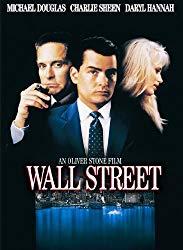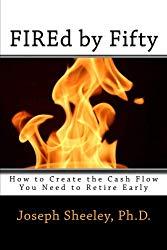Taking a brief aside from investment strategies and growing wealth, today’s entry addresses the basic tenants on which the stock market exists: Free Enterprise/Capitalism. If you live in a Capitalist country, almost everything you use everyday is there because of free enterprise. Even this blog is here because of free enterprise – I provide a product without anyone telling me to do so because I’m hoping that enough people will read it and buy something from an affiliate link or buy one of my books to pay me for the time I take. If I put out useful content and people keep coming back, I’ll be rewarded and I’ll keep writing more articles. (Likewise, the books will provide a decent income to me if they are useful and people tell others to buy a copy.) If what I’m putting out isn’t useful, no one will read, I won’t make enough money to encourage me to keep writing, and I’ll either change the content to something people want or find something more useful to do.
(Note, this site contains affiliate links. As an Amazon Associate I earn from qualifying purchases. When you click on an affiliate link and buy something, The Small Investor will get a small commission for the referral. You are charged nothing extra for the purchase. This helps keep The Small Investor going and free. I don’t recommend any products I do not fully support. If you would like to help but don’t see anything you need, feel free to visit Amazon through this link and buy whatever you wish. The Small Investor will get a small commission when you do, again at no cost to you.)
Think about it: People all over the US, with no one telling them to do so, are spending hours figuring out what people need as well as where and when they need it, then putting forth all sorts of effort to fill that need. People are hungry – I’ll open a restaurant. People need fuel – I’ll open a gas station. People need their dogs walked – I’ll start a dog walking service. Do you ever notice that there is almost always a restaurant, or two or three, where you need one? Do you notice that you almost never need to worry about running out of gas because there is a filling station where you need it. Capitalism is almost like magic in placing things right where you need them, open the hours you need them, and at a fair cost for the good or service you need.
How the Stock Market Works
Because of the motivation is growing wealth, capitalism has been painted as inherently evil by university professors, Hollywood screen writers, and self-described intellectuals. Who can forget Gordon Gekko’s speech in the movie, Wall Street, on how greed was good? It is no mistake that he was the villain in the movie, representing any number of real-life traders and hedge fund managers who have made their fortunes in the financial system. But this is a false picture. Even though they do so out of greed, investors can only make money investing if they are doing good for others.

The stock market is a vehicle by which individuals with ideas and the willingness to do the hard work to enact those ideas gain capital. An individual who wishes the start a company and grow rapidly issues stock which investors purchase, giving them an ownership stake in the new company. If the company is successful, those investors are expecting the value of their ownership stakes to grow. When they do, they can sell those stakes to others for substantially more money, or they can remain owners and reap benefits of the successful business in the form of dividend checks. Investors who choose companies that grow and sell a lot of products, because they are fulfilling a need that people have, gain money that they can then invest in other companies. Investors who choose badly and buy into companies that are not useful lose money. This encourages investors to think of what is really needed before investing their money.
While there are some exceptions, such as Ben and Jerry’s, neither the individuals who start the company nor the investors in the company are usually motivated by a desire for doing some higher good. Individuals do not start a chain of restaurants through the desire to provide the residents of the area with another dining choice. Investors don’t buy into a chain of car washes
Capitalism creates a system in which individuals, entirely on their own, seek out ways to provide for their fellow humans in the most efficient manner possible. If there is a need of great enough significance that someone can make a profit from serving it, someone will come up with a service to meet that need and others will invest in the idea to allow the innovator to build his/her company. If a service or product is offered that does not meet a need, it will fail and be removed from the market. The capital that funded it will be directed elsewhere to a better idea.
Capitalism creates choice and variety.
By walking into a supermarket in a Capitalist society I find ten kinds of mustard. Twelve kinds of catsup. I find ingredients for ethnic dishes from several countries right down the street in the supermarket, even in a small town. If I don’t like the selection or the prices in that supermarket, I can drive a mile away to another supermarket, just as large. In the former Soviet Union there were stories of people standing in line for hours for the basic necessities and shortages of basic items such as toilet paper. I can walk into any number of stores and find 10-20 different brands of toilet paper, ranging from cheap single-ply to elaborate quilted triple-ply and cotton blends.
Turning to food, I can find over 50 restaurants in my town of 20,000. In a larger city

(If you enjoy The Small Investor and want to support the cause, or you just want to learn how to become financially independent, please consider picking up a copy of my new book, FIREd by Fifty: How to Create the Cash Flow You Need to Retire Early This is the instruction manual on how to become financially independent.)
You can’t get there through central planning. Capitalism is like magic.
The cause of this bounty — of stores stocking what I’m looking for, open the hours that I need them to be, and with this great amount of variety — isn’t the result of some central planner who anticipated my needs. How could it be? How could an individual or even a department of individuals 1000 miles away be able to design a system that meets my needs and those of all of my neighbors and all of the neighborhoods across the nation?
And what of the individuals who work twelve-hour days? Nights? Weekends to start these companies and make them grow? Is their effort the result of some central planner who provides them with a grant or some other incentive? No, if anything the regulations created by the central planners and the mountains of paperwork they force entrepreneurs to create serve to dissuade the young entrepreneurs from starting companies and pursuing their passions. These individuals work these hours, try to anticipate the needs of those around them and place the right product, in the right place, right when someone needs it not because of government direction. Not out of some sort of benevolence and desire for self-sacrifice. They do so in an effort to meet needs that aren’t being fulfilled to make money.

Want all the details on using Investing to grow financially Independent? Try The SmallIvy Book of Investing.
Free markets create fair prices.
Some think that Capitalism causes people to raise prices as much as possible and price controls are needed. But as long as there is sufficient competition, prices will be as low as reasonable. Think about it: If I had a pizza
If a guy opened a pizza place across the street, however, and I were making $40 profit per pizza on my $50 pizzas, he might decide to sell his for $40, knowing that he would only get $30 profit per pizza but that he would take all of the business away from me since he was selling for less. Get enough competition and prices would continue to fall until the profit was reasonable, maybe $2 per pizza. Prices would then stabilize there because it just wouldn’t be worth it to me to spend my time making pizzas if the profit I could get was any lower. I’d find something else to do because I need to feed my family too. This means that Capitalism, with sufficient competition, causes prices to be set at as low a value as is needed to pay for everything and make a reasonable profit.
Capitalism creates fair wages too
Capitalism, with sufficient competition, also causes wages to go as high as they can while still being reasonable. Just as competition causes prices for goods to fall to their minimum reasonable level because competitors lower their prices until it no longer is worth providing the goods, competitors for workers will raise wages until they can no longer make a reasonable profit. Workers who are are productive and can make more money for the company can get paid more. If they are underpaid, they are able to change jobs and find someone who will pay them more. this continues until it is no longer is worth paying them more because the money generated by their working would not be enough to cover their salary and still make a decent profit.
If you want people to put others first and avoid tyranny, go Capitalist.
Capitalism is not evil – it is the most efficient means of meeting the needs of a nation. Most importantly, because there is no central control, the individuals of the society enjoy the greatest amount of freedom. Because individuals provide goods and services for themselves and others without the need for resources from a central group, no central group can easily use the provision or withdrawal of those goods and services to hold power over others.
Have a burning investing question you’d like answered? Please send to [email protected] or leave in a comment.
Follow on Twitter to get news about new articles. @SmallIvy_SI
Disclaimer: This blog is not meant to give financial planning or tax advice. It gives general information on investment strategy, picking stocks, and generally managing money to build wealth. It is not a solicitation to buy or sell stocks or any security. Financial planning advice should be sought from a certified financial planner, which the author is not. Tax advice should be sought from a CPA. All investments involve risk and the reader as urged to consider risks carefully and seek the advice of experts if needed before investing.
